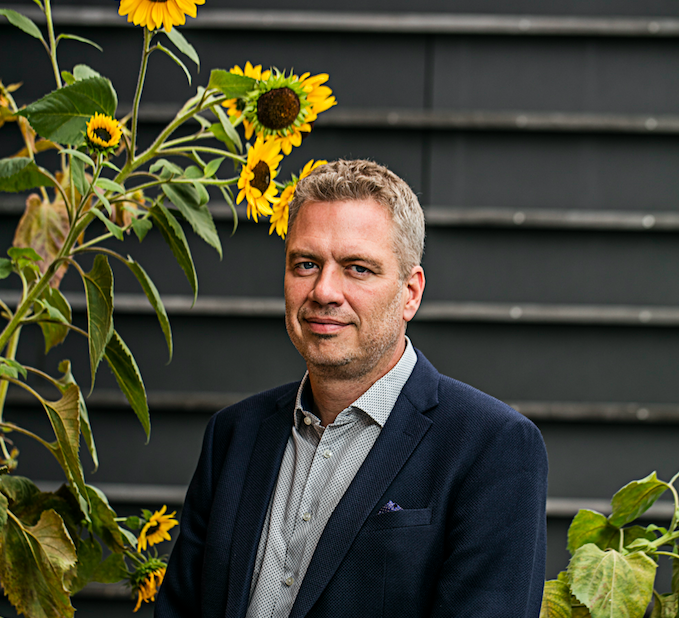-
The COVID-19 pandemic has had a significant impact on both perceptions and practices in sustainability.
-
TechRound explores sustainability trends for 2021, with predictions from industry experts.
-
Industry experts include SEMrush’s Olga Andrienko, Ksapa’s Farid Baddache and Sprout World’s Michael Stausholm.
While saving lives and reducing the virus’s spread became top priorities throughout the past year, another significant change the world started to see were the effects lockdowns and reduced activity had on the environment.
Carbon emissions fell sharply even during the first of the lockdowns; with Venice waters and Delhi skies clearing, whilst wild animals began to roam the then quiet city streets.
However, the pandemic’s impact on the environment, and sustainability as a whole, are a lot more complicated than nature’s reclaiming of locked-down streets and canals suggest. While we could very well see positive and long-lasting environmental change after COVID’s global health crisis, this will be down to us, and how we act in the post-pandemic world.
But what are our best guesses on how sustainable we’ll be in this world? To help answer this question, we’ve collected comments from a number of industry experts, offering up their predictions for sustainability in 2021.
Our Panel of Experts:
- Vicky Smith – Founder of Earth Changers
- Michael Stausholm – Founder and CEO of Sprout World
- Olga Andrienko – VP of Brand Marketing at SEMrush
- James Ellsmoor – Founder and Director of Island Innovation
- Phil Bridge – President at Ontrack
- Farid Baddache – CEO and Co-founder at Ksapa
For any questions, comments or features, please contact us directly.

Vicky Smith, Founder of Earth Changers

Tourism is resilient, despite constantly shifting global situations, emergencies and customer hiccups, growing unabated for decades, because people love to travel.
But not enough have voted with wallets for sustainable travel; preferring to focus lifestyle changes on more tangible change, if at all, not wanting to think about sustainability on holidays.
“Tourism was already dealing with crises: Climate Change and Biodiversity Loss, now there’s Covid and a subsequent Recession on top. These all impact the sustainability triple bottom line, which is tourism’s capital – people, planet, profit – representing as it does 10% of world GDP and jobs.”
“Never before have 100% of destinations been closed simultaneously as in 2020, decimating community livelihoods, conservation funding and 80% of the market. The industry will bounce back in time, but it won’t be the same, in supply or demand.”
“Never before has sustainable tourism been so important. In fact, it’s the opportunity of a lifetime for wholescale change.”
“In lockdown, people have become increasingly aware that the health of people and planet are inseparable. They have noticed cleaner air, calmer environments, more wildlife, stronger communities – and like it. It’s reminded them how holidays used to be, and they’ll want to seek out this real retreat. They want space, health and safety, connection with authentic local people, culture, nature and experiences. Having missed holidays, they’ve come to value them even more.”
“This type of tourism is sustainable tourism. It’s value over volume, quality over quantity, doesn’t exploit but supports others, doesn’t damage but enhances the environment. And with COP 26 approaching in November, talk and awareness on carbon and decarbonisation will be increasing all year.”
“Faced with increased greenwashing due to the increased interest in sustainability, consumers will recognise they don’t know about how to discern what is sustainable travel and what’s not, and turn to specialists like us to advise.”
“In response to changing demand, for the first time we’ll see global and national policies supporting sustainable tourism, in line with our Paris Agreement and SDG commitments, and finance and tech institutions too. It’s not about better tech, but being more human.”
“At Earth Changers, where we help people find and book trips that truly change the world, we’ve been working for this for 15+ years – sustainable travel interest has been fast-forwarded 5 years, and we didn’t expect that to come from Covid: Tourism which benefits the world can be a silver lining.”
Michael Stausholm, Founder and CEO of Sprout World

“In 2021 sustainability will be on the agenda more than ever before. The trend towards more conscious consumerism has been on its way for at least a decade but the pandemic has forced us to take the environment even further into account. I predict we will see the following three changes this year.”
Sustainability will move from nice-to-have to need-to-have:
“Sustainability will no longer just be nice to have for business. Instead, it will be crucial for businesses. With the increased focus on the UN’s Sustainability Development Goals and with a rising demand from consumers, businesses will need to put their good intentions into action.”
“For example, an eco-friendly product is core to what we have at Sprout World – pencils that turn into plants after use. But our goal for this year is to become even more sustainable. It’s a work in progress; no business can be perfect or 100% sustainable to begin with but as long as you move forward towards environmental improvements, you are on the right track.”
There will be a clean-up of greenwashing:
“In 2021, we will see more demand for proof of what lies behind the words you use as a company. For example, expect to provide substantial detail and clarity to questions such as: ‘What do you mean when you state that your products are “biodegradable”, “eco-friendly” or “recyclable”? Many businesses use these terms, but can you explain exactly what they mean and how your product, service or business meets those standards?”
Production will be closer to home:
“With the pandemic, I’ve seen many companies reconsider where they source their products, and this will continue in 2021.”
“A large majority of consumer products are still made in China and this has shown to be a huge problem. Firstly, with manufacturing coming to a halt as a result of pandemic lockdowns in Asia, and secondly, companies have realised that they’ve lost control of how their products are produced.”
“Low cost production is no longer that attractive if you make them at the cost to ethics and the environment. That’s why we will see many European and American companies pulling their production back to their continents in 2021. It’s easier to supervise and there will be more consumer demand for locally produced products.”
For any questions, comments or features, please contact us directly.

Olga Andrienko, VP of Brand Marketing at SEMrush

An increasing number of online searches for sustainable gym wear, fitness accessories and furniture, highlight that more and more Brits are becoming eco-conscious – spending their time searching for environmentally friendly products.
Olga Andrienko, VP of Brand Marketing at trusted data provider SEMrush, says the new research offers a glimpse of what sustainability looks like for the future of 2021 as it unfolds.
“When it comes to sustainability and rising trends, we can see the fastest growing category is fitness. UK online searches related to sustainable sportswear have seen a whopping 1194% increase. Searches for ‘sustainable yoga mat’ also grew by 279% – suggesting Brits want to stay fit in an ethical way,” Olga said.
“With a growing number of the populace stuck in lockdown we continue to observe very interesting shifts in search behaviour. We saw a great demand for ‘sustainable pyjamas’ as searches rose by 306%, ‘sustainable underwear’ up by 256%, ‘sustainable jewellery’ increased by 244%, ‘sustainable baby clothes’ up 186% and searches for ‘sustainable furniture rose by 182%. Even searches for sustainable toilet paper skyrocketed by 132%. These trends clearly indicate green is the new black for Britain.”
“Interest in sustainability has continued to rise from 31,750 to 53,418 average yearly searches from 2016 to 2020 for the term alone – crystallising that more people across the United Kingdom are keen to stay educated, informed and in favour of preservation.”
More from Interviews
- Meet Roman Eloshvili, Founder of ComplyControl
- Inside Mobile Payments with Bojoko’s Ville Saari
- Meet Steve Haskew, Group Director of Sustainability and Growth At Circular Computing
- A Chat with Hakob Astabatsyan, CEO and Co-Founder of Synthflow AI
- Meet Ernesto Suarez, CEO at Travel Insurance Provider: Gigasure
- Under Pressure and On the Clock: Gurhan Kiziloz’s Nexus International to Hit $1.45B Revenue in 2025
- Daisy Ip of InvestHK: Why Hong Kong Continues To Grow In Popularity Amongst UK Fintech Startups
- A Chat with AJ Balance, Chief Product Officer at Grindr
James Ellsmoor, Founder and Director of Island Innovation

“As the world adapts to working from home and organisations sought to find new ways to operate remotely, islands in the Caribbean began to create new visa programs aimed at the growing number of companies that are allowing their staff to work remotely.”
“Both Bermuda and Barbados opened their borders to remote workers and their families, echoing developments in other islands centred around attracting these digital nomads. The one-year renewable visas offered by both nations contain a range of advantages on top of the access to high-quality Internet and perks of island life, such as tax benefits and access to local infrastructure.”
“Additionally, these visas are set to become available to nomads that are able to prove they are under contract or capable of supporting themselves while in-country. This ensures that the remote workers that are moving to Bermuda or Barbados do not take away jobs from islanders while being able to contribute to the local economy. The programme has proved successful, with international interest leading to several other nations to consider and implement similar visas – but has also highlighted the importance of having a strong technological and Internet network.”
“Other islands, such as Arranmore in Ireland, invested in high-speed Internet prior to the pandemic in a bid to reduce population loss and reinvigorate their local economies. Decentralised working provides an interesting opportunity to both attract long-term tourists but also provide new job opportunities for islanders themselves.”
Phil Bridge, President at Ontrack

“The negative impact that the surge in data centres is putting on the planet is well documented and needs to be addressed. The energy consumption of the world’s data centres is predicted to account for 3.2 per cent of the total worldwide carbon emissions by 2025, and as much as one-fifth of the total amount of electricity used worldwide. By 2040, storing digital data is set to create 14 per cent of the world’s emissions, around the same proportion as the US does today.”
“Data is one of the world’s most valuable commodities today. Across the world’s business hubs, data centre demand has been driven by the rapid adoption of cloud services and the emergence of digitally transformative business models born out of the Internet of Things (IoT). With sustainability now at the forefront of many people’s minds – and deservedly so – it would be great to think that the data centres of the future will impact the planet far less than they do now. However, that remains to be seen.”
Farid Baddache, CEO and Co-founder at Ksapa

“If 2020 was the year chips all fell into place, 2021 will kickstart action against the 2030 Global Agenda. Marred by a pandemic shock, the last 12 months exemplified the impacts of interwoven climate, social and digital crises.”
“The Covid-19 crisis drove home the urgency of delivering the necessary tools, strategies and resources to deliver key environmental transformations – from climate to circularity, water and biodiversity stewardship. It also demonstrated the importance of working at the interface of society and the environment, as the virus crystallized social disruptions around inequity, job transformation and industrial recalibration across all sectors and geographies.”
“Ksapa expects 2021 to be a year of engagement and scrutiny from all sides, across ESG impact, Human Rights Due Diligence, corporate accountability and biodiversity commitments. The greater risk is no longer being the first mover, but loosing relevance altogether.”
“In the context of lingering Covid-19 uncertainty, cross-supply chain ESG prioritisation will make or break a business. We recommend economic leaders pinpoint their ESG strengths and weaknesses to address underlying issues. Only then may they channel stakeholder expectations of long-term resilience and non-financial regulatory compliance. From there, we look onto the coming years as a the Delivery Decade, where business will shift gears and display bold ambition and scale.”
“The time is ripe for decorrelating value creation and the environmental footprint of products, operations and supply chains. Embedded in our incorporative statutes is a commitment to actively partake in the public debate around sustainability. As such, we regularly share expert perspectives in our blog. Check out Ksapa’s Towards 2030 report for concrete insights into the potential of technology and innovative finance solutions to meet the challenges with the highest level of ambition, vigilance and impact!”



